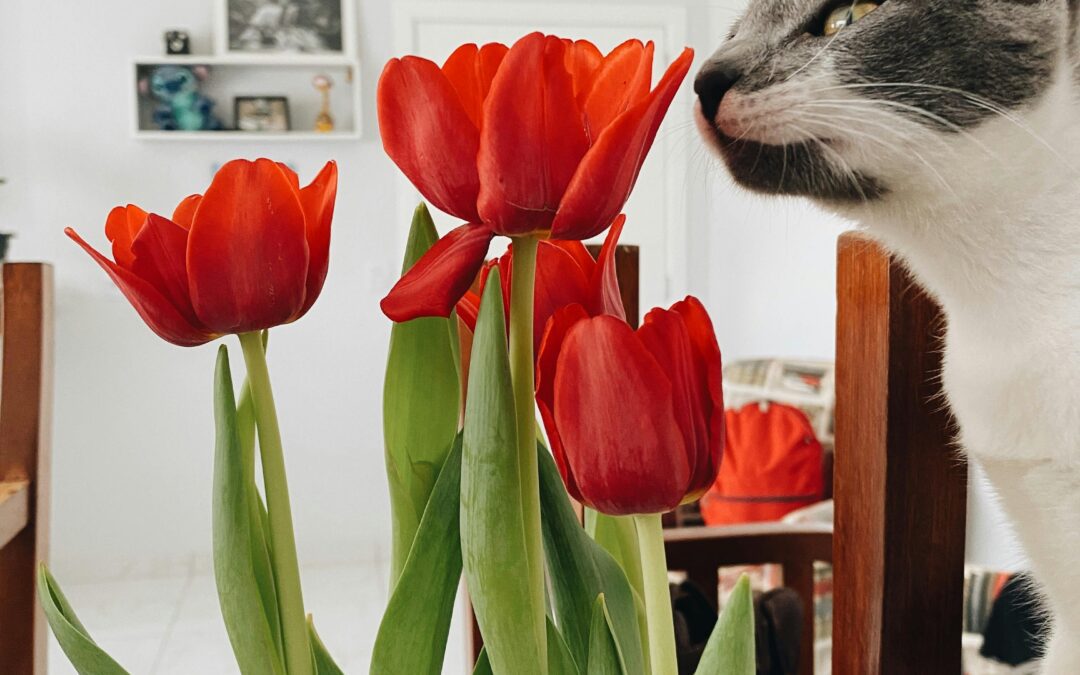Five Harmful Chemicals That Could be Lurking in Your Home & Threatening the Health of your Cat
To commemorate National Animal Poison Prevention Week on the 19th to 25th of March, our team wants to spread awareness about some of the most hazardous household products for cats.
#1: Houseplants
Before you bring a bouquet of flowers into your home or spruce up your garden, remember to check the ASPCA’s toxic plant list for any pet-threatening plants. Lilies in particular pose an extreme danger to cats; even contact with their pollen can be lethal. Other indoor houseplants that are poisonous include dieffenbachia, elephant ear, and spider plants – while ivy and oleander should also remain outside if pets live nearby! Keeping track of these dangerous chemicals will help ensure the best health of both yourself and your furry friends.
#2: Medications
Cats, especially those driven by their appetite, can be quite quick when it comes to snatching up pills or even an entire pack of beef-flavored heartworm preventives. They may also rummage through visitors’ bags in search of medications or pilfer from the kitchen countertop. If these items are ingested, then cat owners must act quickly; overdoses can be fatal and time is precious! Please contact a nearby animal poison control hotline without delay for assistance!
#3: Food
Guard your furry friend against the potentially dangerous delights of the kitchen! Chocolate, macadamia nuts, xylitol, avocados, unbaked yeast dough, alcohol, grapes, and raisins are all capable of causing serious illnesses such as kidney failure and seizures among others. Keep counter-surfing cats away from your cooking area with a latching garbage can prevent curious snouts from gaining access.
#4: Household chemicals
To ensure the safety of your beloved cat, store away any common chemicals that could be potentially hazardous to them if ingested in large quantities. Such chemicals include:
- Cleaning products
- Disinfectants
- Candles
- Antifreeze
- Aerosol air fresheners and other products
- Windshield washer fluid
- Paint
- Glue
- Nail polish remover
#5: Batteries and coins
Ingesting batteries and coins may lead to metal poisoning in cats, so it is important to be aware of the dangers. If an animal chews or punctures a battery, it can result in chemical burns for your cat. Additionally, accidentally swallowing an entire battery could cause gastrointestinal obstruction.
In the event that your cat has likely come into contact with a dangerous substance, time is of the essence – please don’t delay in contacting our team for assistance.



